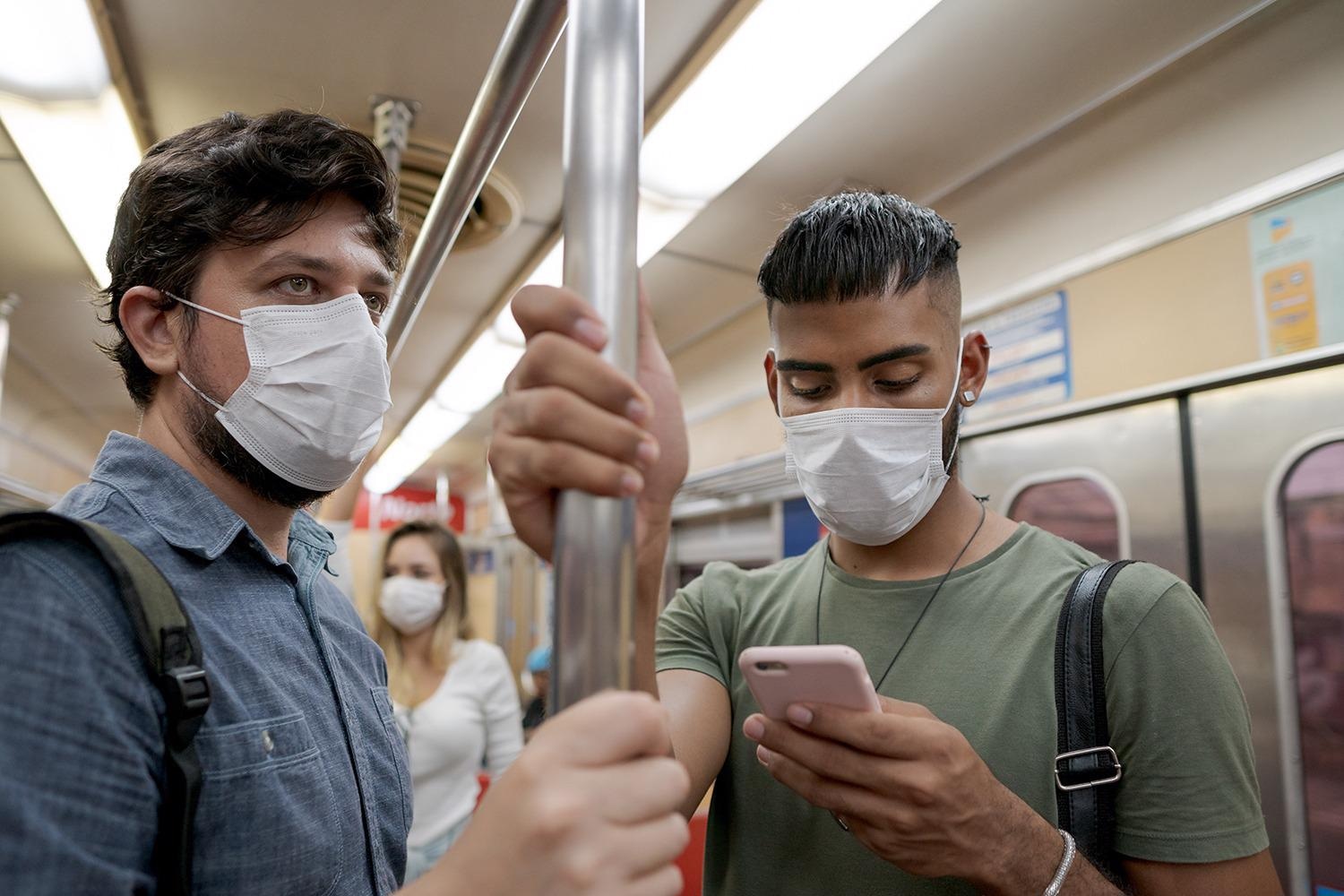The public transport industry is emerging from the skeleton services that operated during lockdown 3.0 and once again it aims to provide a safe environment for passengers to feel comfortable to ride on buses, trains and trams again. We can expect to see the same increase in demand that we did between July and September, when the number of journeys increased by almost 100 million.

Image Credit: Signo-Nanocare
Even with a large proportion of the working population still working from home and the use of staggered work times, it’s still a challenge to social distance on trains, trams and buses. While face masks form a barrier to droplets, commuters are still concerned about travelling, and with good reason.
Deep cleaning the high-frequency touch surfaces within tram and train carriages and buses ensures the first commuter’s risk of picking up transient microbes is at the lowest point all day. As the number of commuters increases at each stop, so do the numbers of microbes they leave behind as they touch seats, door handles and push buttons, never mind the tables, plug sockets, toilets and sinks! In these situations, commuters may feel quite safe wearing gloves, as they plan to remove them when they leave the vehicle. However, while they are there, they are still transferring microbes between surfaces and probably onto their own personal technology, phones, headphones, books and tablets.
The transfer of microbes from hand-surface-hand contact is a valid concern. Cleaning Matters article ‘2021: The future of cleaning and hygiene’ quotes that ‘seventy-two per cent of people are concerned about germs left on surfaces shared by colleagues’, never mind strangers! One of the challenges that face transport operators is that within carriages and buses there is a mix of hard and textile surfaces that require cleaning daily. The hard plastic, metal and laminated surfaces can be cleaned with many transient cleaners, but the textile surface of seats can pose a problem for routine daily disinfection. With seats being one of the most touched surfaces as people make themselves comfortable, it is important that they don’t become a home for virus and bacterial colonies.
In an ideal word, we would make these high-frequency touch surfaces, hard and textile, ‘self-disinfecting’ with the ability to kill microbes on contact, rendering them inactive and harmless. In true Tomorrow’s World style – we bring you Liquid Guard®, an antimicrobial nanocoating that forms a long-term, 3h hardness, scratch resistant, bonded layer that physically kills viruses, bacteria, moulds and fungal infections on contact. It can be used on all non-absorbent surfaces and textiles and is easily applied in a two-stage process for hard surfaces and a single application for textiles.
As with many Tomorrow’s World sound bites, this may sound far-fetched, but on the contrary, Liquid Guard’s microbial action has been tested and verified by independent testing laboratories, and is certified effective against SARS CoV-2 and other enveloped virus such as influenza A. It is also effective at reducing the transmission of many other commonly found bacteria such as MRSA and E.coli.
Since the easing of the first lockdown, Liquid Guard has been used in schools, government and private offices and sports venues, where regular Adenosine Triphospate (APT) testing has shown a constant reduction in the microbial activity on the surfaces. Demonstrating the coating’s ability to make surfaces the ‘weak link’ in the chain of infection and reducing the transfer of microbes via the hand-surface-hand transmission route.
Ensuring public transport vehicles are ‘Covid Compliant’ on a daily basis is a major challenge that requires considerable time and manpower to achieve. The process can be made simpler and more effective through the application of Liquid Guard antimicrobial coating that has been proven to provide an additional measure of hygiene between cleaning and disinfection cycles (regular cleaning is still required to remove dirt, dust and debris from surfaces). This helps to prevent the new, more transmissible variants of SARS CoV-2 jumping on and off at every stop and hitching a lift on phones, pens and coffee cups to new destinations, while allowing transport operators to return to their pre-Covid cleaning cycles.